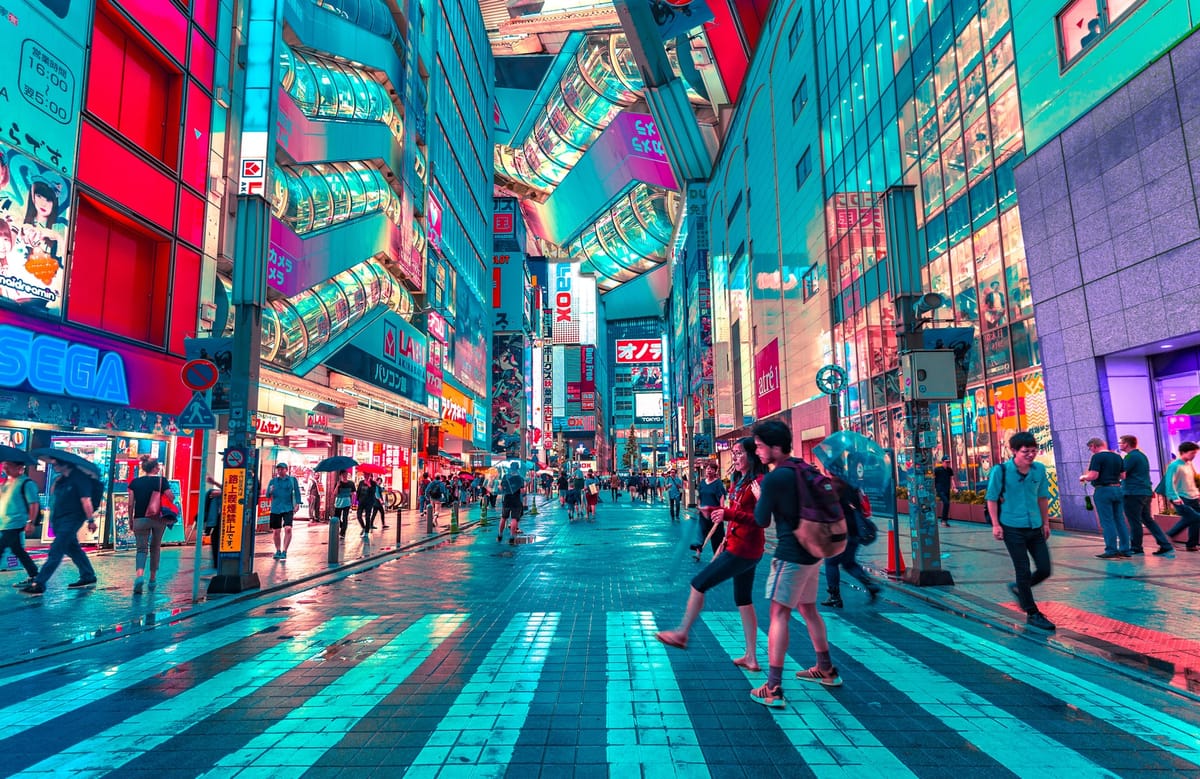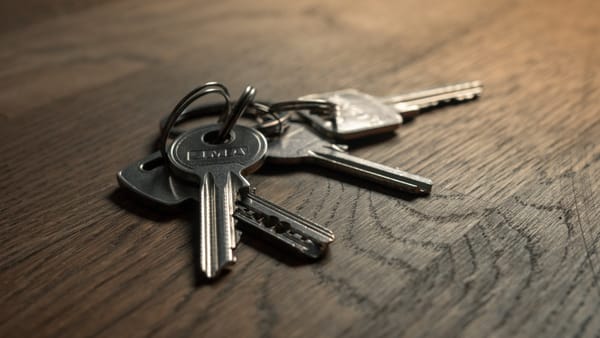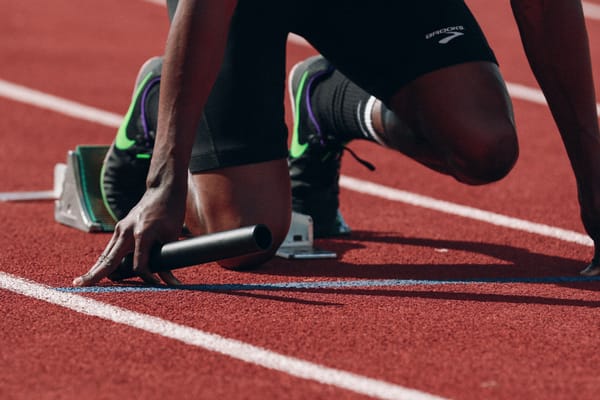Avoid inertia! How to thrive in years to come?!
You want to thrive, but there will be small things to drag you back. Avoid inertia, even in little things and habits. Leverage new practices and save time and attention. It will compound in the long term.

It's been a year since we are in a pandemics, more or less under lock-down or other restrictions. The result of it is that the world has changed in many ways at a professional and personal level.
Even if we will solve the pandemic's problem or learn to live with it, changes accelerated during this period will stay with us.
There are many examples of changes, which accelerated. Remote work, e-commerce, logistics, education changes at schools and e-learning, offices' role. Too many to count.
Those changes were already on the way, in some cases years away. Now they accelerated, and within the year, we did as a collective a fast forward for 5 (or more) ways in many areas.
As with every change, there is inertia opposing the change. Inertia is people and forces who will look to get back to "normal." There is no way back to it if we call previous practices "normal."
What is normal anyway? It is a way to react to change in "baseline" to call something "normal" (a baseline) and calling the change "not normal."
There is no way back to "old normal." People and companies are looking to get back to the office, stores, and travel again. Changes are in motion. New practices emerged and will develop further. You can work against it or look at using it for your leverage.
A case of shopping and inertia drag
I've never been a fan of shopping. That might influence my point of view on it. I haven't visited a mall or shopping center for a year now, and it hasn't crossed my mind to do it, even if these are now open.
This Saturday, I jogged on my route, which takes me next to one of my neighborhood's shopping malls. What I saw there was inertia to change in its pure form. People were standing in line to enter the mall (there are limits of people inside) in -5C outside.
It is the best example of "normal" trying to drag people to the old way of doing things.
Inertia!
Last year shopping has moved online! It was there; the previous year accelerated it for everyone. My small grocery store started to take orders online and deliver them. My fresh veggies are still delivered to my doors once a week.
You want proof. Check stock prices of e-commerce platforms, Amazon or Shopify.
The selection online is better, prices are lower, delivery and returns are free and easy.
Now let's talk about inertia in shopping. Building a shopping mall is an expensive project. Maintain it is a costly business. Businesses present often had to pay steep prices to get it and have their place there. Why?
A shopping mall was a conduit between the customer and the sellers.
There is a lot of capital invested in it, and this capital will have one goal: CONVINCE YOU TO GET BACK TO SHOPPING IN THE MALL. There is no return on the capital invested without you in the mall.
It is hard to re-purpose those places for a changing world. The strategy is to get people to go to the shopping mall to spend time and money again. The queue in front of the mall I saw proves that it works. Inertia is strong in us!
This process is not limited to shopping malls. You will see it everywhere - in offices, entertainment, conferences, media. It will drag you back for different reasons - money, power, control, status.
Following the inertia drag in the short term will not make much difference. Long time it might make a huge difference.
The cost of inertia and getting back to "normal"
Not fighting the inertia has a cost. It cost you personal resources (time, attention). It might also cost you monetary value (the price of goods in a shop, cost of travel) and the long-term cost of lost opportunities.
You can choose - get back to previous practices:
-
Go to the office every day and commute to it back and forth,
-
Choose your place to live based on the location of your work
-
Spend time in a shopping mall instead of buying goods through e-commerce and delivered to your doors
-
Travel 16h to the tech conference to "feel" it
-
Drive for 4h to get t0 30m customer meetings (they are most likely distracted anyway).
or change the way you operate to leverage the change and build on new practices:
-
Work in distributed teams, without attachment to the physical location, commute, and work hours
-
Quick e-commerce shopping with access to personalized offers online with quick delivery
-
Remote learning and up-skilling, without a need to travel to the on-site location
-
Sped up the learning process (watch only important pieces, skip the fluff) instead of flying to the conference
-
Delegating tasks to people all around the world through remote tools and services
Leveraging new, emerging practices and services will benefit you in freeing two resources:
-
Time, releasing time from things you were used to in-person or required you to travel.
-
Attention, remove distraction, commuting time, office chatter, and switching contexts.
People who will spot inertia and learn to avoid it will enjoy the leverage on those two resources: time and attention. It is not a call for the hustle and more work in extra time, far from it. Extra time and attention you will free-up can be used to:
-
Spend time on rest, boosting your productivity in the active periods
-
Upskilling in the current or future areas which allows you to build an advantage in the world
-
Build digital skills or products to deliver them to others
-
Go and workout or, in another way, take care of your health, with good long-term effect.
-
Educate yourself in economy and finances (become financial savvy) and use your assets.
-
Research on new emerging practices and trends to invest time for the future.
-
Be flexible to take on new challenges without the need to re-think life (moving, changing the place to live)
These effects will compound over time. Everything compounds over time! It is hard to spot it at a given moment, but it will.
Time and attention spent on those elements will let you build a better life, health, career, work, and rest ethics.
In the end, it will lead to your competitive advantage and wealth (however you will define it, not only limited to money).
Here is a dilemma
Nothing is that straightforward, so here is a dilemma. People who will enjoy new practices and changes are likely to benefit from it anyway. Let's say it - most of us are already privileged.
You have the means and resources to access services online (it is not granted for everyone).
You have time to spend on learning and taking care of your health (again, not granted for everyone).
You have some resources to spend on education, investing, and otherwise benefiting from having it.
We are in a position to look for work in a distributed environment.
The dilemma is that those changes will not benefit all people (it never is). The people who struggle already will experience the biggest inertia drag.
I will not pretend I have the answer to this dilemma, but it is something which I am aware of (and you should be as well)/
What does it mean in practice?
Nice theory, but what does it mean in practical terms? How can you apply it to your daily life and work?
I can not tell you how you can do it; I can tell you what my actions (some implemented, some still in progress) based on the changes I observe are:
-
I used to be in the office every day. Our office is open under restrictions now (required by the law), but I will re-adjust to be there but not in 100% capacity when it opens in full. More like 3 days remote/2 days in the office. I live close to it anyway, but work from home allows me for other changes.
-
I will limit my travels going forward. I do not plan to go to any technical event or conference soon, requiring extensive travel. I will travel less for business, checking if it is a good investment of my time first before committing.
-
I will not commit to on-site conference speaking and similar appearances if travel is required. Even without extensive travel, I will judge how much time it needs me to be on-site and decide based on it.
-
I invest in my distributed work environment: simple things - desk, good display, a good computer, furniture. I plan to use it way more as I used it last year.
-
I will make changes in the place of living (already in progress) and re-evaluate it further as the future will unfold (distributed work from outside of Poland for more prolonged periods etc. )
-
I default to shopping online for almost everything now. Convenience and time savings first over small prices need me to travel to the shop or extended time for pickup.
-
Limit or remove from living things, limiting my mobility in the long term.
-
Build more presence online and through tools, make sure I don't have a barrier to use any means to interact or work with people.
-
Make sure I can access my resources online. Hey, banks and other places - if you are online first, you have my business. Close and break ties with those who need me to be physically present.
-
Pay more attention (can I?) to my services and assets' online security.
-
Invest in assets and communication methods, which scales online (look at this blog) over those requiring physical presence or extensive travel.
-
Use the time saved on health (exercises, 2020 was already a good year for it), education, and re-allocation of my focus to new areas.
Not a full list, but it should give you a hint on where to look and what to avoid. As you can see, those don't have to be
Have you had some thoughts about it? Have you observed some inertia move in your environment?
Are you willing to be dragged by it or build upon new practices that will emerge from this whole mess called 2020 pandemics :)?
PS. I don't know if "inertia drag" is an official term. If not, let's agree that I coined it.
Cover photo by Jezael Melgoza on Unsplash



